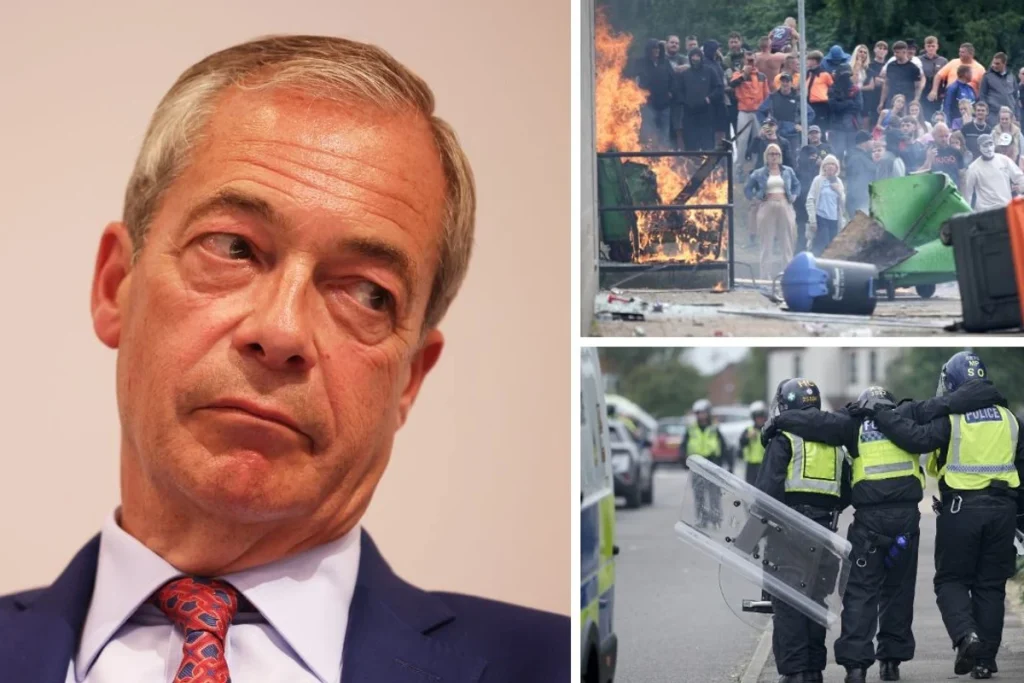The leader of Reform UK, Nigel Farage, has admitted to disseminating false information in the wake of the tragic knife attack in Southport that claimed the lives of three young girls. The incident has ignited widespread violence and unrest across England and Northern Ireland.
Nigel Farage, renowned for his controversial political stance, posted a video online shortly after the attack, where he speculated about the assailant’s background. In the video, he stated that some reports suggest he was known to the security services, a claim that has since been debunked.
This misinformation, which originated from various online sources, rapidly circulated and contributed to violent scenes during a vigil held for the three children. The situation then escalated into several days of riots across the UK.

In an appearance on LBC, Farage attempted to justify his actions, asserting that his intent was to uncover “the truth.”
He elaborated: “There were stories online from some very prominent folks with big followings – Andrew Tate, etc – suggesting the man had crossed the English Channel in a boat in October 2023. Other suggestions that he was an active Muslim, and much of this led to the riots that we saw. I asked a very simple question – was this person known or not.”
However, LBC presenter Tom Swarbrick challenged Farage’s defence, highlighting the dubious sources of his information.
“Nigel Farage, you didn’t just do that, did you? You said some reports suggest he was known to the security services. Those reports were from a fake news website amplified by Russian state TV and, as you mentioned, Andrew Tate. Which ones were you looking at?” Swarbrick asked.
Farage responded: “This only reinforces my call for clarity. I could have claimed ‘some reports suggest he crossed the Channel last October’ or that ‘he was an active Muslim.’ I refrained from making such statements. What I sought was clarity. We did not receive it, and I would argue that the scale of the unrest in Southport could have been lessened had the truth been revealed swiftly.”
The UK is currently facing its most severe wave of riots in 13 years, with far-right demonstrators targeting asylum seekers and ethnic minority communities nationwide. Suspects involved in the unrest are now appearing in court, with over 400 individuals arrested and 100 charged.
A surge of anti-Muslim disinformation on social media has fuelled Islamophobic and far-right violence in the aftermath of the fatal stabbing in Southport on 29 July.


